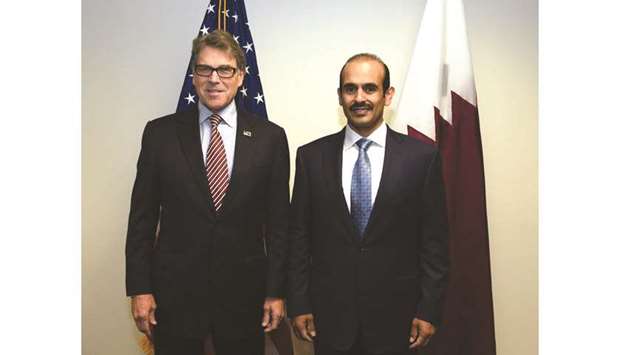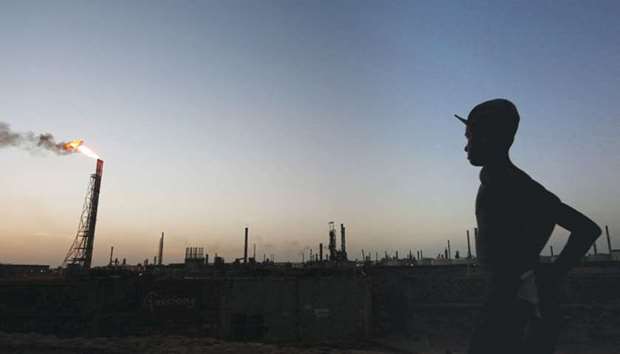Paris et Doha bétonnent leur « amitié »

Le président français, Emmanuel Macron, et l’émir du Qatar, Tamim ben Hamad al-Thani, se sont rencontrés hier à l’Élysée.
Paris et Doha poursuivent leurs efforts pour maintenir leur relation au beau fixe. L’émir du Qatar, le cheikh Tamim ben Hamad al-Thani, et le président français, Emmanuel Macron, se sont rencontrés hier à l’Élysée. Cette visite officielle du souverain qatari dans la capitale française marque le troisième rendez-vous entre les deux hommes depuis décembre dernier avec l’objectif, selon l’Élysée, « d’approfondir la très bonne relation » entre M. Macron et le cheikh Tamim.
« Le Qatar est pour la France un pays ami et un partenaire fiable », a déclaré hier le président français lors d’une conférence de presse conjointe avec l’émir. Ce dernier, s’exprimant en français, a souligné « l’importance » de « l’amitié » entre les deux pays.Au-delà des liens entre M. Macron et son hôte, la relation entre la France et le Qatar s’étend sur plusieurs niveaux. Le petit émirat est un partenaire de taille pour la France alors que, selon le bureau des communications du gouvernement qatari, les échanges commerciaux entre Paris et Doha s’élevaient à 1,15 milliard d’euros en 2017. L’émirat joue également la carte de la francophonie pour se rapprocher de la France. Doha a pour objectif d’être « le témoin de l’année des relations culturelles franco-qataries » en 2020, précise le bureau sur son site.
Durant leur entrevue, l’émir et le président ont abordé de nombreux sujets régionaux. « Nous avons d’abord parlé de la lutte contre le terrorisme, son financement et contre la radicalisation », a indiqué M. Macron, alors que les deux pays entretiennent une coopération étroite dans ce domaine. Ils ont par ailleurs signé une feuille de route hier à ce sujet, sans indiquer son contenu exact. Les dossiers chauds ont également été discutés, à savoir « l’Iran, le Yémen, la Syrie, le processus de paix en Palestine ou encore la Libye », a-t-il précisé, avant d’ajouter que Paris et Doha souhaitaient « accroître » leur coopération sur le dossier libyen, sans donner plus de détails.
L’épineuse question de la crise du Golfe, enlisée depuis un an, était également au menu de la rencontre. Les discussions en coulisses pour lever le blocus mis en place par l’Arabie saoudite, les Émirats arabes unis, Bahreïn et l’Égypte contre le Qatar, le 5 juin 2017, accusé de financer le « terrorisme » et d’être trop proche de l’Iran, n’ont pas été concluantes, alors que chaque partie campe sur ses positions. La crise « doit se résoudre par le dialogue », a affirmé le dirigeant français. Selon lui, « il y va de la stabilité régionale dans un contexte marqué par la multiplication des tensions ». À cet égard, « la France continuera (…) à parler à toutes les parties et inviter au dialogue, à la modération et à la réconciliation ».
« Relation stratégique »
Paris a tenté à plusieurs reprises de jouer les médiateurs entre les parties, notamment en nommant Bertrand Besancenot, ancien ambassadeur français à Riyad, émissaire pour ce conflit, en septembre dernier. Adoptant une position « médiane » dans la crise, selon l’Élysée, la France reste fidèle à sa ligne diplomatique traditionnelle, permettant à Paris de s’afficher en tant que partenaire fiable mais capable de parler à tout le monde.
Interrogé sur la possibilité de faire intervenir la France dans la médiation de la crise, le président français a expliqué que Paris prendrait « une initiative si à un moment donné elle nous est demandée, si elle est utile ». « Je considère que le rôle de la France est de poursuivre le dialogue que nous menons avec toutes les parties, de n’isoler personne et de n’exporter aucune tension précisément pour aider à un moment à la restabilisation », a-t-il noté. M. Macron a par ailleurs précisé avoir affirmé à nouveau « soutenir » une médiation par le Koweït, les parties à la crise ayant indiqué à plusieurs reprises vouloir résoudre la crise uniquement avec les acteurs régionaux. Pour Doha, cette nouvelle visite s’inscrit dans le cadre de ses efforts pour faire fructifier ses partenariats en dehors du Golfe et ainsi s’émanciper de la main saoudienne dans la région. Une volonté qui a décuplé depuis le déclenchement du blocus par Riyad et ses alliés. Interrogé sur la possibilité d’un achat qatari de missiles S-400 russes, l’émir du Qatar a confirmé que des discussions ont eu lieu, mais a affirmé « qu’il n’y a pas d’accord » à ce sujet pour le moment. Selon une information du journal Le Monde, Riyad aurait envoyé une lettre en mai dernier à la présidence française pour demander à Paris de faire pression sur Doha pour qu’il ne puisse pas acquérir ce système de défense antiaérienne. Riyad s’était dit prêt à « mener toutes les actions nécessaires » pour empêcher que ce scénario se produise.
Dans un contexte régional tendu, l’émirat s’est déjà tourné vers Paris, entre autres, pour agrandir son arsenal militaire. Les deux pays entretiennent déjà une coopération militaire privilégiée alors qu’ils ont signé un accord de défense en 1994 et que des troupes françaises sont stationnées dans la base qatarie d’al-Udeid aux côtés des forces du commandement central américain. Le Qatar, qui était le deuxième importateur d’armes françaises en 2017 après le Koweït, a notamment signé des contrats militaires de plus de 11 milliards de dollars lors de la visite de M. Macron à Doha en décembre dernier. Douze avions Rafale ont été alors commandés, s’ajoutant à l’achat qatari de 24 Rafale en 2015. « Cette coopération est non seulement industrielle, mais de gouvernement à gouvernement », a estimé M. Macron hier. « Nous avons une relation stratégique qui est portée par une vision et des objectifs communs », a-t-il insisté. L’agence de presse qatarie QNA a publié jeudi des photos sur Twitter de la visite de l’émir à l’escadrille des Rafale qataris dans la base militaire de Mont-de-Marsan, accompagné de la ministre française des armées, Florence Parly. « Ils ont discuté des liens de coopération militaire et de défense entre l’État du Qatar et la France et des moyens de les renforcer », a rapporté l’agence.






